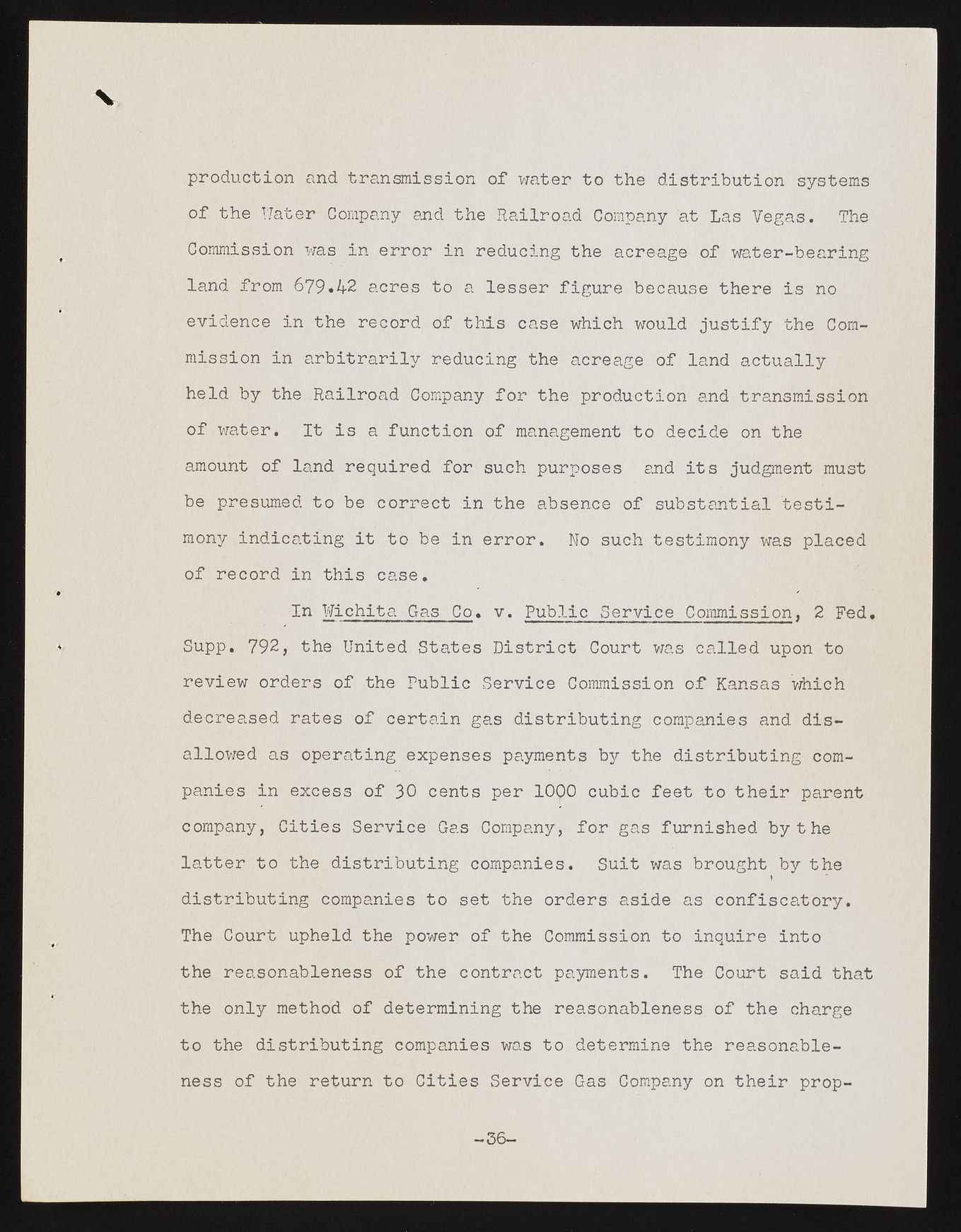Copyright & Fair-use Agreement
UNLV Special Collections provides copies of materials to facilitate private study, scholarship, or research. Material not in the public domain may be used according to fair use of copyrighted materials as defined by copyright law. Please cite us.
Please note that UNLV may not own the copyright to these materials and cannot provide permission to publish or distribute materials when UNLV is not the copyright holder. The user is solely responsible for determining the copyright status of materials and obtaining permission to use material from the copyright holder and for determining whether any permissions relating to any other rights are necessary for the intended use, and for obtaining all required permissions beyond that allowed by fair use.
Read more about our reproduction and use policy.
I agree.Information
Digital ID
Permalink
Details
More Info
Rights
Digital Provenance
Publisher
Transcription
V production and transmission of water to the distribution systems of the Water Company and the Railroad Company at Las Vegas. The Commission was in error in reducing the acreage of water-bearing land from 679.42 acres to a lesser figure because there is no evidence in the record of this case which would justify the Commission in arbitrarily reducing the acreage of land actually held by the Railroad Company for the production and transmission of water. It is a function of management to decide on the amount of land required for such purposes and its judgment must be presumed to be correct in the absence of substantial testimony indicating it to be in error. No such testimony was placed of record in this case. In Wichita Gas Co. v. Public Service Commission, 2 Fed. *• Supp. 792, the United States District Court was called upon to review orders of the Public Service Commission of Kansas which decreased rates of certain gas distributing companies and disallowed as operating expenses payments by the distributing companies in excess of 30 cents per 10Q0 cubic feet to their parent company, Cities Service Gas Company, for gas furnished by the latter to the distributing companies. Suit was brought by the distributing companies to set the orders aside as confiscatory. The Court upheld the power of the Commission to inquire into the reasonableness of the contract payments. The Court said that the only method of determining the reasonableness of the charge to the distributing companies was to determine the reasonableness of the return to Cities Service Gas Company on their prop- 36-

